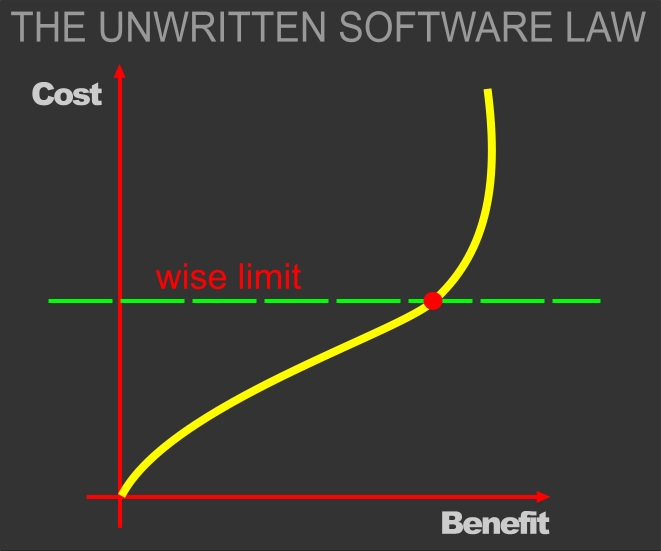Hallo everybody!
I'm totally new to this forum, and I'm sorry to begin with a hard question (at least it seems to me so).
I use GTD software for organizing my work and life, but I still haven't found a sw that does a quite simple operation: strong interaction with agenda and automatic time-keeping.
I try to explain this thing a little better.
Suppose I have a project "Read a book", and I know this book is 100 pages long, and that I can read at most 10 pages per hour.
I would normally set up a project involving 10 tasks (#1 "read from p. 1 to 10", #2 "read from p. 11 to 20" and so on), each one needing 1 hour to be completed. Let's suppose I use a "@library" context.
At the library I would open my sw, filter tasks by context and find out that today I was supposed to read p 31 to 40 if I want to finish my project in time... just because I never had the chance to go to the library.
someone could call me mad, but: what if a piece of code helped me putting the right tasks in the right hour of the right day of my agenda?
If i'm supposed to read the whole book for december 31 and I can do it in 10 hours, it's probably useless to begin reading at september 1st... So the sw I'm looking for should be able to find the right spaces in my agenda and calculate when I would be supposed to begin my reading.
Better still if those tasks could be dinamically upgraded, according to priority (it could be that a new high priority project conflicts with this one) and/or time.
I currently use a PC and a Blackberry synced via MS Exchange.
Thank you for any help!
I'm totally new to this forum, and I'm sorry to begin with a hard question (at least it seems to me so).
I use GTD software for organizing my work and life, but I still haven't found a sw that does a quite simple operation: strong interaction with agenda and automatic time-keeping.
I try to explain this thing a little better.
Suppose I have a project "Read a book", and I know this book is 100 pages long, and that I can read at most 10 pages per hour.
I would normally set up a project involving 10 tasks (#1 "read from p. 1 to 10", #2 "read from p. 11 to 20" and so on), each one needing 1 hour to be completed. Let's suppose I use a "@library" context.
At the library I would open my sw, filter tasks by context and find out that today I was supposed to read p 31 to 40 if I want to finish my project in time... just because I never had the chance to go to the library.
someone could call me mad, but: what if a piece of code helped me putting the right tasks in the right hour of the right day of my agenda?
If i'm supposed to read the whole book for december 31 and I can do it in 10 hours, it's probably useless to begin reading at september 1st... So the sw I'm looking for should be able to find the right spaces in my agenda and calculate when I would be supposed to begin my reading.
Better still if those tasks could be dinamically upgraded, according to priority (it could be that a new high priority project conflicts with this one) and/or time.
I currently use a PC and a Blackberry synced via MS Exchange.
Thank you for any help!

